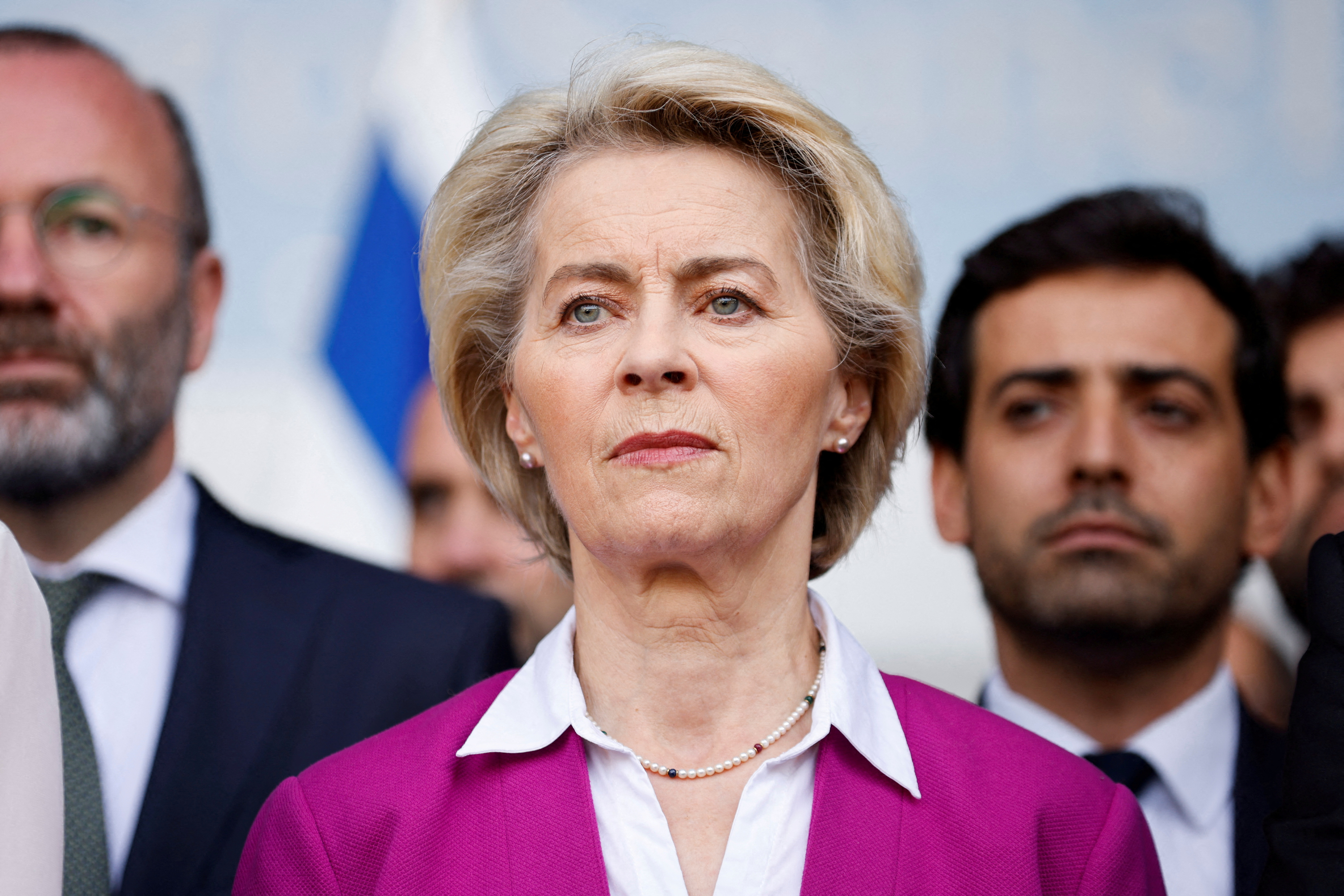
European Commission President Ursula von der Leyen attends a solemn moment to remember the people killed in Israel, during the ongoing conflict with Hamas, at the European Parliament, in Brussels, Belgium, October 11, 2023. REUTERS/Johanna Geron/File Photo Acquire Licensing Rights
BRUSSELS, Nov 30 (Reuters) – A country investing in cross-border EU defence projects should be given more time to cut its public debt under EU fiscal rules, the head of the European Commission said on Thursday.
The fiscal rules are under revision and such a change would go beyond what has so far been agreed among governments, which only want to grant defence spending the status of a “relevant factor” when the Commission assesses whether a budget deficit is within EU limits.
Commission President Ursula von der Leyen said at an annual conference of the European Defence Agency that if such a rule were introduced to the EU’s debt and fiscal laws, could be a major change for the 27-nation EU’s defence and industrial policy.
The EU’s fiscal rules, which limit government borrowing, are being debated by finance ministers in the EU Council. Once they reach a deal, they will need to win approval of the European Parliament.
“In the Council, there is now broad support to consider increases in defence spending as a relevant factor when assessing whether a Member State has an excessive deficit,” von der Leyen said.
“There is room for further targeted and time-limited adaptations – to reduce the required near-term fiscal effort for Member States that are simultaneously increasing their defence spending. This could be particularly relevant for investments in identified critical capability gaps,” she said.
The investments would have to be collaborative among European nations and “this would generate a specific incentive for cross-border projects in Europe,” she said.
Defence spending is now mainly a national affair, but Russia’s invasion of Ukraine in 2022 has brought to the fore discussions on the benefit of joint procurement and production of military materiel to boost manufacturing capabilities.
Von der Leyen said the option of EU fiscal rules granting more time for fiscal consolidation to those who spend on defence could be added to the final framework during negotiations with the European Parliament.
“If acceptable, co-legislators could consider these suggestions while finalising the current proposals. This could be a gamechanger for the Union’s defence and its defence industrial policy in these exceptional times,” she said.
Reporting by Jan Strupczewski; editing by Grant McCool
Our Standards: The Thomson Reuters Trust Principles.






